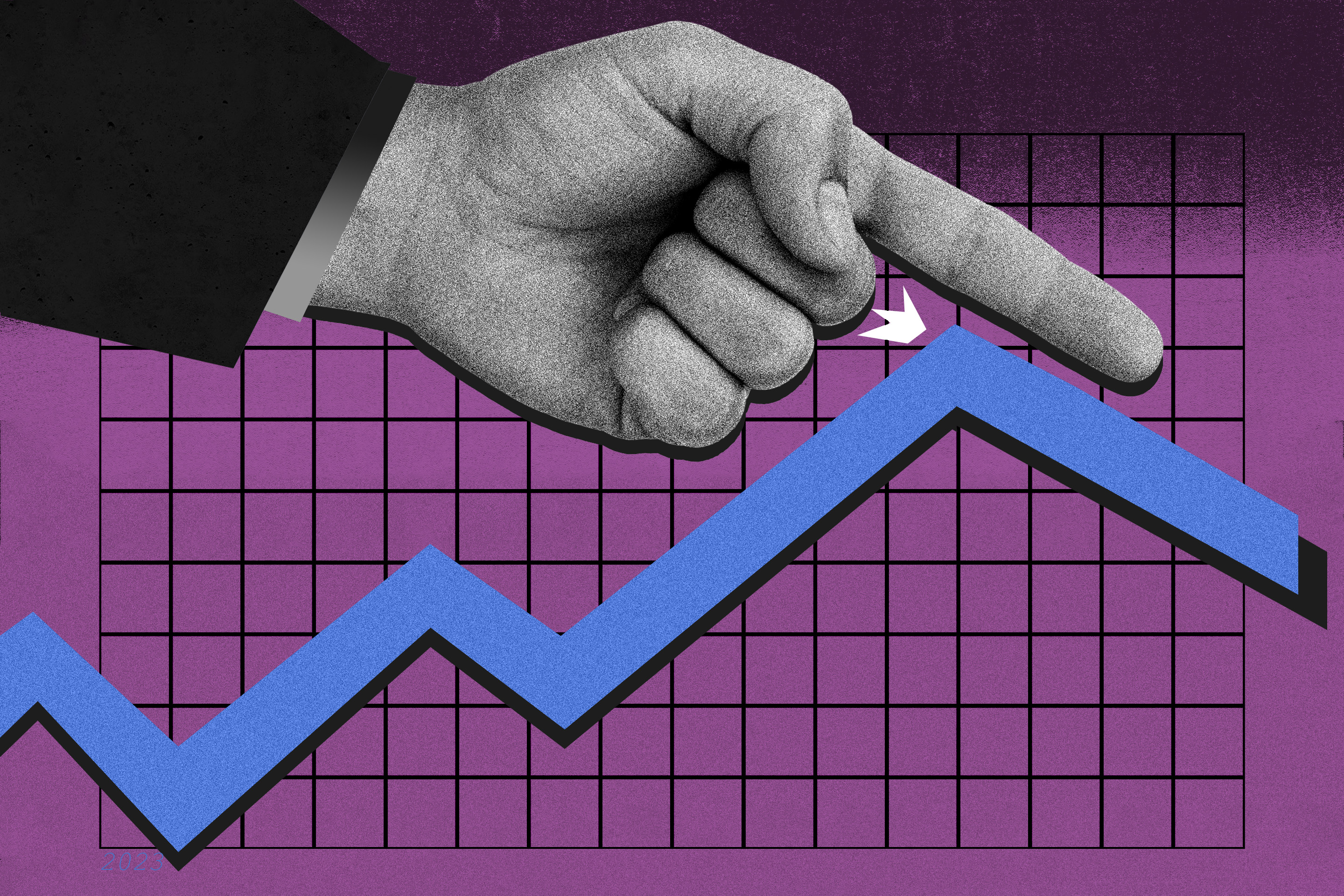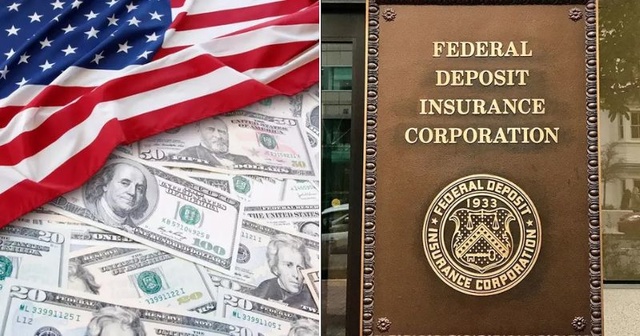$98 Billion Pulled From Banks Amid The Banking Crisis In US: Data
According to statistics, the vast majority of financing was provided by small banks. Deposits rose $67 billion at large institutions but fell $120 billion at smaller banks. As a result of the withdrawals, the total amount of deposits fell to just over $17.5 trillion, or about 0.6% of the total.

As new information revealed that customers recently withdrew nearly $100 billion from banks, regulators reaffirmed their assurances to the public that the banking system is safe. A special closed-door meeting of the Financial Stability Oversight Board was held on Friday, attended by Treasury Secretary Janet Yellen, Federal Reserve Chairman Jerome Powell and more than a dozen other government officials.
The data was released shortly after the market closed on Friday and coincided with the release of fresh Fed data that showed bank clients withdrew a combined $98.4 billion from their accounts in the week ending March 15. This would include the period when the industry was rocked by the sudden collapses of Silicon Valley Bank and Signature Bank.
Statistics According To The Banks
According to statistics, the vast majority of financing was provided by small banks. Deposits rose $67 billion at large institutions but fell $120 billion at smaller banks. As a result of the withdrawals, the total amount of deposits fell to just over $17.5 trillion, or about 0.6% of the total. Deposits have fallen steadily over the past year or so, falling by $582.4 billion since February 2022, according to seasonally adjusted Fed data.
Money market fund assets rose by $238 billion to $5.13 trillion in the past two weeks through March 22, according to data from the Investment Business Institute. Earlier this week, Powell sought to reassure the public that the banking system is safe. According to Powell, deposit flows have “stabilized over the past week” as a result of the Fed’s “strong actions” to sustain the system.

Banks have flocked to emergency credit lines set up since the collapse of SVB and Signature. Statistics released Thursday revealed that institutions borrowed $53.7 billion through the Bank Term Financing Program and an average of $116.1 billion a day from the central bank’s concession window, the most since the financial crisis.
According to the head of the International Monetary Fund, upheavals in the banking sector pose a danger to the financial stability of the entire world economy. Rising interest rates have put pressure on borrowers and created “stress” in developed countries, especially among lenders, according to Kristalina Georgieva, CEO of the Washington-based lender of last resort.
Concern Of Experts
According to Georgieva, the global economy will grow by only 3% this year due to the Covid-19 pandemic, rising interest rates and the conflict in Ukraine. The IMF president said it was clear that threats to financial stability had increased with the recent failure of Silicon Valley Bank and the Swiss government-brokered bailout of Credit Suisse by UBS, adding to a growing chorus of concerns from economic leaders.
Her candid remarks coincided with predictions by the European Central Bank (ECB) that the recent banking turmoil would severely affect business and the economy. According to ECB Vice President Luis de Guindos in an interview with Business Post, the EU central bank is concerned that problems in the banking sector will lead to a slowdown in GDP and lower inflation. Perhaps the economy will benefit by seeing slower growth and lower inflation, he added.
As well as offering a difficult trade-off between slow growth and high inflation, Britain’s post-Brexit outlook puts central bankers in a precarious position when it comes to raising interest rates. The head of the UK government’s spending watchdog has highlighted the damaging effects of leaving the EU on Britain’s economy, claiming it would leave behind economic wounds worse than the epidemic.

According to Richard Hughes, chairman of the Office for Budget Responsibility, “We think [Brexit] will reduce our total output by around 4% compared to if we stayed in the EU.” It is a shock to the UK economy “on par with past shocks from flu and the oil crisis,” the source said. According to Guindos, so-called shadow banks – the name for non-bank financial institutions – could further expose the flaws of the financial system if the economic crisis in the UK, EU and US deepens. We think this can be a source of problems for the whole financial system, so we have to be careful, he added.
These non-banks took “a lot of risk in times of very low interest rates” and did so while “increasing their share of the financial system in Europe,” Guindos said. These non-bank entities are not subject to regulation by central banks such as the ECB. Authorities in Switzerland are still trying to deal with the fallout from Credit Suisse’s failure. When the bank received a sizeable bailout ahead of its emergency merger with rival Swiss bank UBS, public pressure on the authorities increased. The bailout controversy has added to the reverberations of the global financial crisis caused by the recent failures of major financial institutions in the US and Switzerland.
Struggle Of The Banks
The biggest meltdown in the banking sector since the 2008 financial crisis has been attributed in part to the Fed’s relentless rate hikes to control inflation. First Republic, which has lost 80% of its market value this month, is considering ways to downsize if its efforts to raise new capital are unsuccessful, according to three people familiar with the situation. Tuesday’s extended trading saw First Republic shares down 9% after earlier rising as much as 60%.
CEOs of major banks have gathered in Washington for a planned two-day meeting starting on Tuesday to review scenarios for the bank, according to sources familiar with the situation. JPMorgan Chase is helping the San Francisco-based bank seek new capital after it failed to infuse $30 billion in deposits from other banks to calm concerns about its viability.
The sudden demise of Silicon Valley Bank (SVB), which was driven by bond losses caused by rising interest rates, began a turbulent 10-day period for banks that resulted in a $3.2 billion ($3.2 billion) divestment of rival UBS Buyout of Credit Suisse with the help of the Swiss regulator. The bankruptcy of Credit Suisse Additional Tier-1 (AT1) bondholders has shocked the banking industry, and some Asian lenders may find it difficult to replenish their capital through the issuance of such bonds, according to Citigroup.

Yet one of Credit Suisse’s biggest bondholders, whose holdings were decimated by the UBS acquisition, continues to believe in the value of the debt class and the “bail-in” mechanism that was created to save banks deemed too big to fail. CoCos, with their heads in the sand, thought nothing of being “bailed-in”. But that’s the point of CoCos, according to Philip Jacoby, Spectrum’s chief investment officer, who spoke to Reuters. UBS also said it would buy back 2.75 billion euros ($2.96 billion) of debt it issued less than a week ago, seeking to reassure investors shaken by the weekend’s $3 billion bailout by rival Credit Suisse.
Shares of European banks and US regional lenders rose on the back of a Swiss bank bailout that appeared to allay the biggest fears of systemic contagion. Government officials have stressed that the current turmoil is different from the crisis 15 years ago because banks are better capitalized and cash is more readily available. However, following the collapse of Silicon Valley Bank, Australia’s prudential regulator has reportedly begun requiring national banks to disclose their exposure to cryptocurrency startups and companies.
In order to ensure that the rules and procedures for the banking system continue to protect our economy and depositors across the country, it is essential that we investigate the failure of the two banks involved,” Adeyemo made this statement at a meeting of the American Hispanic Chamber of Commerce. Without elaborating, he said: “We are, of course, continuing to monitor the current situation and examine what steps could be taken to further strengthen America’s financial stability.”
Political pressure to hold bank CEOs accountable has grown over time in the United States. The chairman of the Senate Banking Committee announced that the “first of several hearings” on the failure of SVB and Signature Bank will take place on March 28. The Fed said the public will have access to its assessment of SVB supervision until May 1. However, turmoil in the banking sector and financial markets is expected to be the focus of Fed Chairman Jerome Powell’s post-meeting news conference.
Edited by Prakriti Arora




